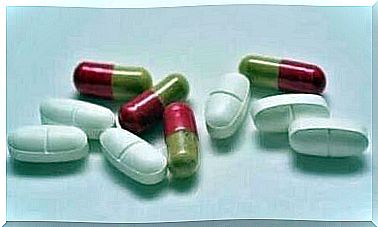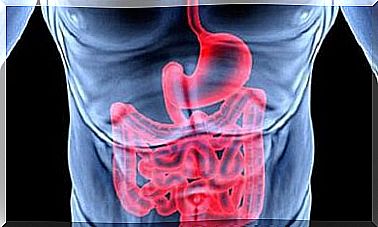What Types Of Food Additives Are There?

What types of food additives are there?
Preservatives are substances that manage to reduce the microbiological risk of food, thus increasing their shelf life. Many of them are harmless to humans because they are not metabolized and are not absorbed in the gut.
But one of the most common types of food additives, nitrites, increase the incidence of some forms of cancer. Research in the journal Nutrients provides evidence for this claim.
The meat industry uses these preservatives. Therefore, experts discourage the consumption of processed red meat. This type of food has been associated with poorer health due to the presence of nitrites.

Flavor enhancers are substances that are responsible, as their name suggests, for altering or enhancing the smell of food. As a general rule, they are harmless to health. But we can experience intestinal disorders due to excessive consumption.
The most common disorder of this type is diarrhea. However, in the long run, flavor enhancers are not harmful (the scientific literature has not yet provided any evidence of this).
These types of food additives are used to give color. Certain dyes have been banned because of their relationship to certain types of cancer.
Nowadays, the food industry uses a lot of pigments to give color to dishes. Not only do these pigments not have negative effects, but they also help prevent the development of diseases. A conclusive case would be anthocyanins, responsible for the color of blueberries and able to exert an antioxidant effect (according to a study published in Critical Reviews in Food Science and Nutrition ).
This group is the most controversial among nutrition experts. Sweeteners are substances with the ability to sweeten, which replace sugar. However, experts do not yet know whether or not they are much better than sugar itself. This group includes saccharin, stevia, sucralose and aspartame.
Some people claim that the human body does not metabolize many of these chemicals in the gut. However, most studies show negative effects on the intestinal microbiota. Indeed, the results cannot be extrapolated directly, but there are no long-term studies to confirm their safety.
Among the taste enhancers are a number of food additives that improve the organoleptic characteristics of food. One of the most important is monosodium glutamate, which is responsible for the (recently identified) umami taste. It is mainly present in Asian cuisine.
Many industrial products contain these types of food additives because they manage to improve food acceptance and increase their taste. They are not necessarily harmful to health. But you should be careful about overdoses.
These types of food additives are responsible for improving the texture of food. They do not have negative effects on the human body, but rather the opposite.
Some of the products that fall into this category have properties that stimulate the intestinal microbiota, improving its functions. This is the case of algae agar agar.
Regular consumption of this class of gelling agents stimulates fermentation in the intestine, which promotes the development of bacteria that colonize the intestine. This process can improve nutrient metabolism, thus reducing the risk of obesity and metabolic diseases. Research published in the journal Gut Microbes provides evidence of the same.

Starch is notable because it is used in bakery products to provide superior elastic qualities to the dough. It consists of a mixture of polysaccharides, being a simple carbohydrate. In itself, it is not harmful to the body.
In the case of sedentary people, an excessive intake of simple carbohydrates is not at all beneficial. This is not the case for athletes, who need to meet their carbohydrate needs to replenish the glycogen stores they use during exercise.
Subjecting modified starches to high temperatures generates several toxic waste products, such as acrylamide. Research has shown that they are harmful to health.
The food industry also uses acidifiers to enhance the taste of food. Sodium sulfate and potassium sulfate are the most important. It does not cause unwanted effects in the body, as long as the recommended doses are not exceeded.
Otherwise, acidifiers may cause a significant laxative symptom. This happens, for example, when a person consumes an excessive amount of candy or chewing gum.
Enzymes are typical of foods for people with intolerances or products generated by the food supplement industry. The most common case is that of patients with lactose intolerance, because the presence of the enzyme lactase helps them metabolize this sugar.
There are also protein isolates or concentrates with digestive enzymes on the market to increase the digestion of nutrients and prevent gas formation. Enzymes are not harmful to health, and experts believe that their use is safe.
Antioxidants are food additives that block or delay the oxidation of food, thus increasing the shelf life. This function is performed, for example, by ascorbic acid (vitamin C).
The use of antioxidants prevents the oxidation of fruits such as avocados or apples. Moreover, their inclusion in the diet has a positive impact on the functioning of the immune system. In fact, it has been shown that increasing vitamin C intake reduces the duration of colds.
General functions of food additives
You have probably wondered why the texture of ultra-processed products is always perfect and different from that of homemade products. This is undoubtedly due to the presence of food additives in the composition of processed products.
This type of substance manages to compact the ingredients and give the mixtures a higher sponginess, which positively influences the tasting experience.

Side effects of food additives
Although food additives have a specific scope and purpose, they are not always safe for health, especially in the case of excessive consumption, as they generate a number of side effects. Therefore, we do not recommend consuming large amounts of food additives.
It is important to watch out for preservatives such as nitrites and artificial sweeteners. The latter are able to generate changes in the population of bacteria that live in the intestine, which affects nutrient metabolism and digestion.
Food additives: are almost always present
It is important to note that food additives are present in almost any diet. Avoiding their consumption is difficult and this is probably not even recommended. It is important to moderate our intake, but not always in the same way.
Do not forget that the basis of a healthy diet is the variety and predominance of fresh products at the expense of ultra- processed. The diet should also be balanced in terms of calories to prevent weight gain.









